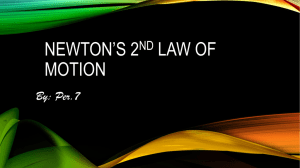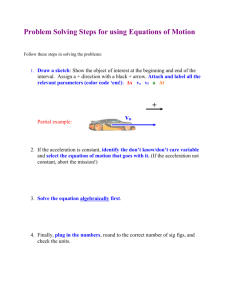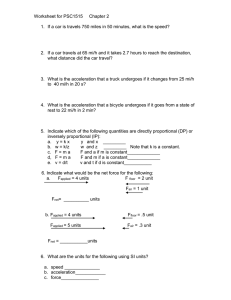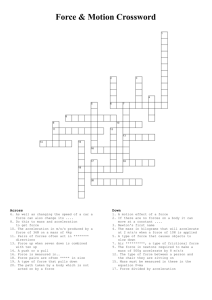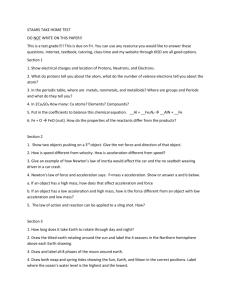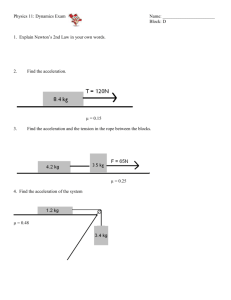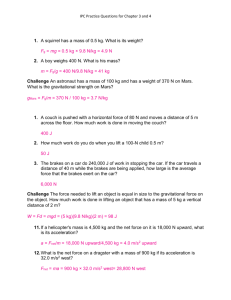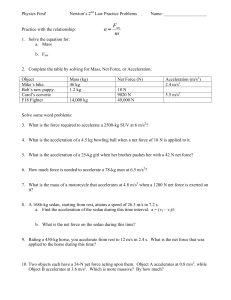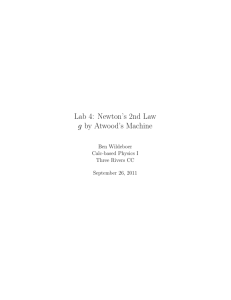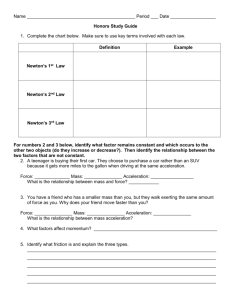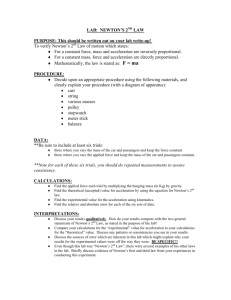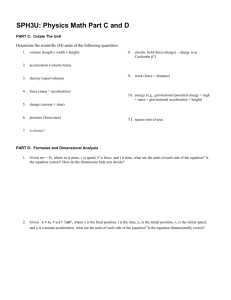Newton`s 2nd Law Entry
advertisement
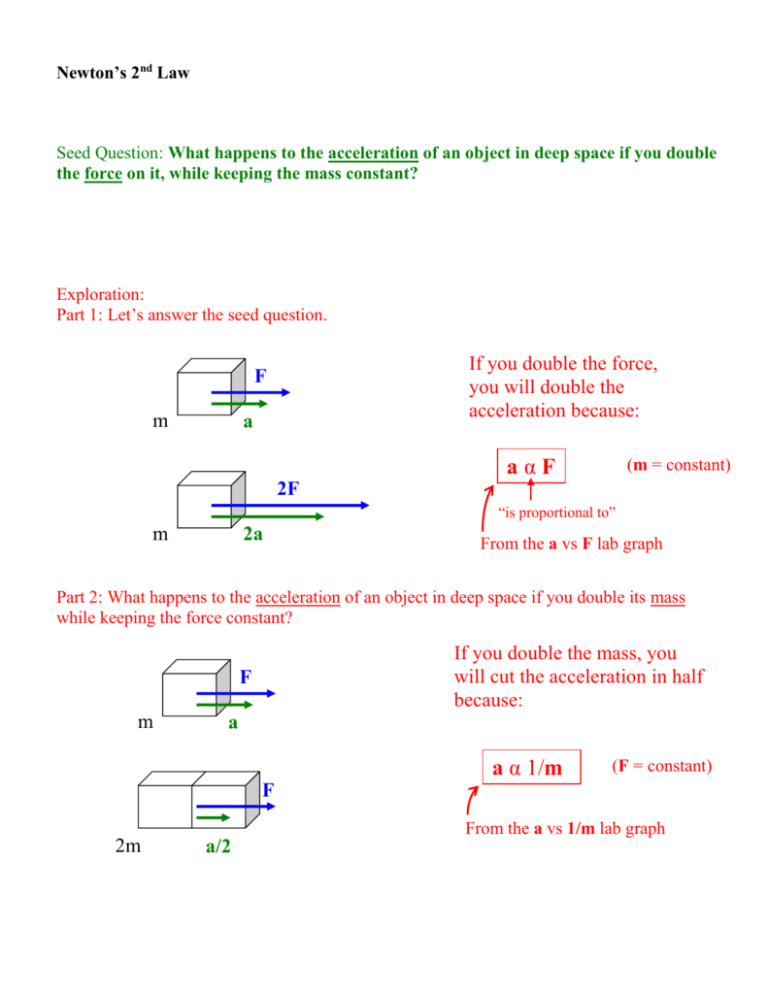
Newton’s 2nd Law Seed Question: What happens to the acceleration of an object in deep space if you double the force on it, while keeping the mass constant? Exploration: Part 1: Let’s answer the seed question. If you double the force, you will double the acceleration because: F m a aαF (m = constant) 2F “is proportional to” m 2a From the a vs F lab graph Part 2: What happens to the acceleration of an object in deep space if you double its mass while keeping the force constant? F m If you double the mass, you will cut the acceleration in half because: a a α 1/m (F = constant) F F From the a vs 1/m lab graph 2m a/2 Big Idea: a α F/m “is prop to” Which means a = constant (F/m) Things will be simple if the constant is 1. Looking at the units, we want: m/s2 = 1 (N/kg) In other words, using metric units we define: 1 N = 1 kg•m/s2 then a = F/m But physicists don’t like fractions so multiply both sides by m: Newton’s 2nd Law: N Fnet = ma m/s2 kg In words: The net (total) force on an object equals the object’s mass times its acceleration. Note: Fnet is a vector: it has magnitude and direction. For Further Contemplation: ?
